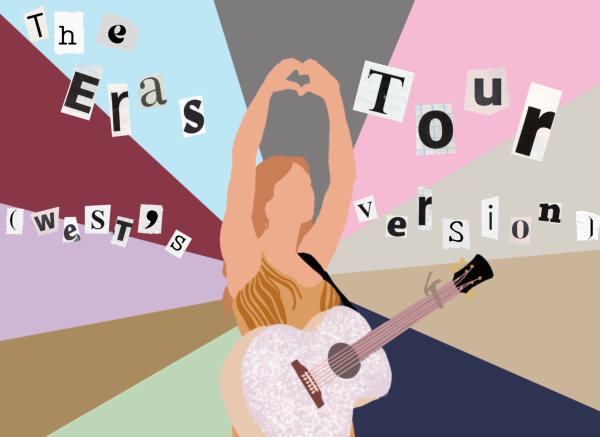The pronoun problem
WSS reporter Bess Frerichs ’21 writes on the topic of people using they/them pronouns encountering resistance and struggling to be accepted by their peers.
In January, we celebrated diversity and inclusivity with the MLK Day Activities. The purpose of the event was to learn about the civil rights movements and to celebrate Martin Luther King Jr. Yet as I sat in the different sessions I kept hearing the words “he or she” being repeated instead of using the more inclusive they. This phrase was not something I had expected to hear on a day where we stressed the importance of being inclusive. Using only the pronouns “he” or “she” excludes a large portion of the LGBTQIA+ community.
People who identify as nonbinary, referring to genders that aren’t exclusively male or female, often use the pronouns they/them instead of the binary terms he/him or she/her. Nonbinary is also often referred to as genderqueer, and there are many different types of nonbinary, such as agender, bigender or genderfluid. Using the correct pronouns is important in helping people feel like themselves.
Using the correct pronouns is important in helping people feel like themselves.
— Bess Frerichs '21
There is opposition to the use of a singular they. Some argue that it isn’t grammatically correct. However, the evidence shows that in many cases English has accepted the use of singular they. Usage of singular they can be traced back as early as the 14th century. Many prolific authors, such as Emily Dickinson and Shakespeare, have used the singular they in their works. And singular they is already in common usage when people don’t know the gender of a person. One doesn’t say “Someone left ‘his’ or ‘her’ phone,” they say, “Someone left their phone.”
In fact, the English language has gone through this sort of grammatical change before. In English, there is no difference between a singular and a plural you. This wasn’t always the case, though. Around the 15th century, you was considered a plural form while thou, thee or thy were used as singular forms of you. When you slowly shifted into being both a plural and a singular subject, it was met with the same sort of resistance that singular they is currently facing.
The largest opposition to singular you came from the Quakers. In “The History of the Life of Thomas Ellwood,” an autobiography of a Quaker, Ellwood writes, “The corrupt and unsound form of speaking in the plural number to a single person, you to one, instead of thou, contrary to the pure, plain, and single language of truth, thou to one, and you to more than one … has since corrupted the modern languages.” In short, Ellwood says that using you as a singular instead of thou has corrupted language.
Ellwood says that using you as a singular instead of thou has corrupted language. — Bess Frerichs '21
However, objections to singular they are not entirely based on grammar rules. The harshest resistance is found when nonbinary people use they/them pronouns for themselves. Those who are against the LGBTQIA+ movement often refuse to acknowledge the existence of people who identify as nonbinary, arguing that there are only two genders. Their reason for this often boils down to ignorance. They don’t realize that people who are nonbinary aren’t doing it for attention or to be different, it’s a part of who they are. The grammar is changing, but we have an even better reason than that to normalize the use of they/them pronouns: inclusivity.
Your donation will support the student journalists of West High School. Your contribution will allow us to purchase Scholarship Yearbooks, newsroom equipment and cover our annual website hosting costs.

(she/her) Bess Frerichs is the online managing and feature editor. As a senior, this is her third and final year on staff. She enjoys reading, writing...


















